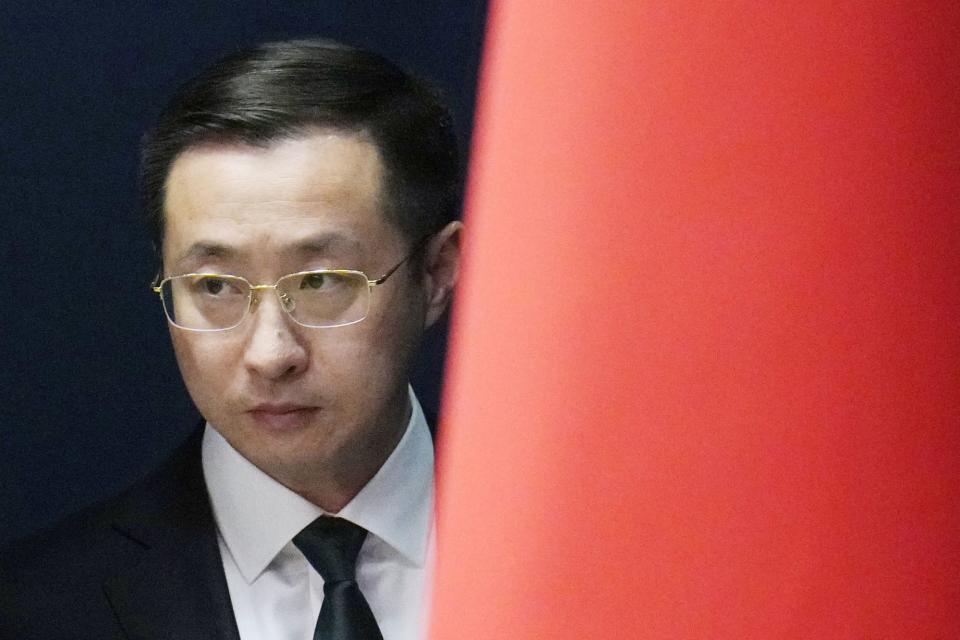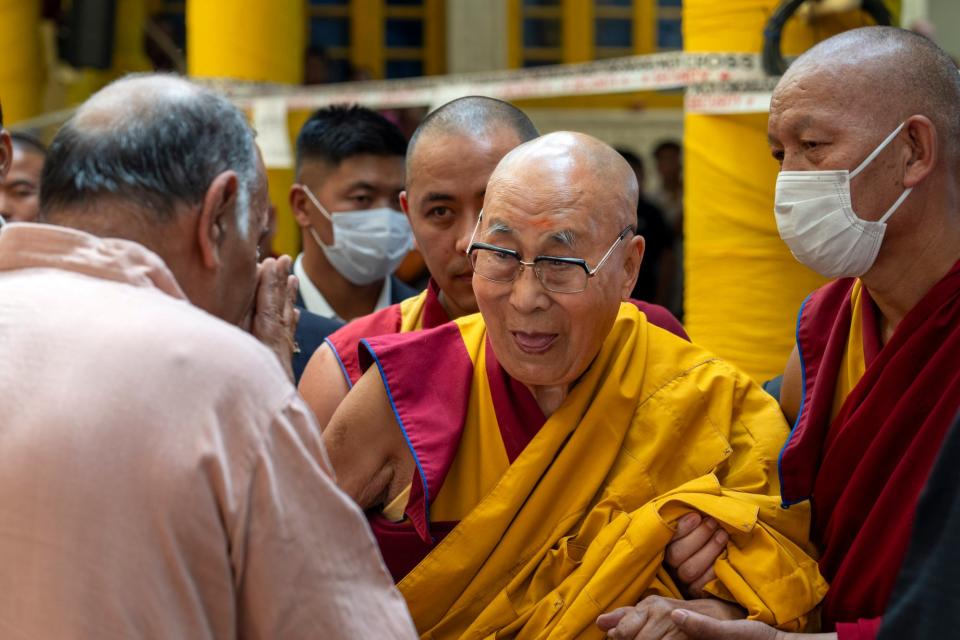China warns US over lawmakers' India trip to meet Dalai Lama, including Nancy Pelosi
After a US congressional delegation arrived in Dharamshala, India, on Tuesday to meet with the Tibetan spiritual leader Dalai Lama, Beijing issued a stern warning vowing "resolute measures" if Washington fails to honour its commitment to recognise Tibet as part of China.
"It's known by all that the 14th Dalai Lama is not a pure religious figure, but a political exile engaged in anti-China separatist activities under the cloak of religion," Chinese foreign ministry spokesman Lin Jian said.
He called on Washington "to fully recognise the anti-China separatist nature of the Dalai group, honour the commitments the US has made to China" on issues related to "Xizang" - the Chinese name for Tibet.
Do you have questions about the biggest topics and trends from around the world? Get the answers with SCMP Knowledge, our new platform of curated content with explainers, FAQs, analyses and infographics brought to you by our award-winning team.
China urged the US to "have no contact with the Dalai group in any form, and stop sending the wrong signal to the world", Lin added.
Specifically, Lin warned US President Joe Biden not to support recently passed congressional legislation - the Promoting a Resolution to the Tibet-China Dispute Act - that challenges China's claim of control over Tibet.

Chinese Foreign Ministry spokesperson Lin Jian said that Washington should "fully recognise the anti-China separatist nature of the Dalai group". Photo: Kyodo alt=Chinese Foreign Ministry spokesperson Lin Jian said that Washington should "fully recognise the anti-China separatist nature of the Dalai group". Photo: Kyodo>
"The US must not sign the bill into law," Lin said. "China will take resolute measures to firmly defend its sovereignty, security and development interests."
The bipartisan delegation, which includes Representative Nancy Pelosi, the former House speaker, and Representative Michael McCaul, the Texas Republican who is chairman of the House Foreign Affairs Committee, plans to meet with the exiled spiritual leader on Wednesday.
And in a move that could complicate Biden's recent attempts to stabilise ties with China, Pelosi - whose 2022 visit as speaker to Taiwan prompted Beijing to suspend all cooperation with Washington for months - addressed the Tibetan parliament in exile on Tuesday.
Though a video of Pelosi inside the building circulated on Indian news channels, it was not known what she said in her speech.
Additionally, in what Beijing might regard as a further provocation, during the delegation's meeting with the Dalai Lama on Wednesday, it plans to discuss the China-Tibet legislation.
"We are very excited to see His Holiness tomorrow to talk about many things, including the bill we passed out of Congress, which basically says that the United States stands with the people of Tibet," McCaul said upon the group's arrival.
Asked whether Biden would sign the bill, McCaul asserted, "Yes, he will."
The 88-year-old Dalai Lama is scheduled to travel to the US on Thursday to undergo medical treatment for his knees.
Beijing maintains that Tibet has been under central Chinese governance for more than 700 years, though Tibetan advocates argue there were periods of effective self-rule. The Dalai Lama has stated that he does not advocate for political independence for Tibet but has not endorsed Beijing's historical claims.

The Dalai Lama after a special event in Dharamshala on June 11 during which exile Tibetans made him traditional offerings and prayed for his long life. Photo: AP alt=The Dalai Lama after a special event in Dharamshala on June 11 during which exile Tibetans made him traditional offerings and prayed for his long life. Photo: AP>
China also accuses the Dalai Lama, who fled to India in 1959, of instigating unrest in Tibet since the late 1980s. Formal dialogue between the two sides has not occurred since 2010.
The US State Department considers the autonomous region and other Tibetan areas as part of China, and no sitting US president has met with the Dalai Lama since Barack Obama did in 2016, though there have been regular visits by US officials and former presidents.
India, which has hosted the spiritual leader and his followers for decades, recognised Tibet as part of China in 2003. But since a deadly border clash in 2020 killed at least 20 Indian and four Chinese soldiers in the contentious Kashmir region, New Delhi has abandoned its deference to Chinese sensibilities over the issue.
The US delegation's trek to Dharamshala coincides with a trip by US National Security Adviser Jake Sullivan and Deputy Secretary of State Kurt Campbell to New Delhi, where Sullivan met with Prime Minister Narendra Modi while Campbell spoke with other officials.
According to Harsh Pant, an international relations professor at King's College London, the delegation's meeting with the Dalai Lama will add another layer of complexity and tension to fraying US-China relations.
"It signals that there is bottom-up pressure on the Biden administration - that is trying to stabilise relationship with China - to relook at the question of Tibet," Pant said.
Pant said that the relationship would remain "tumultuous going forward" because the wider political establishment in the US remains focused on elevating issues like Tibet and Taiwan "which perhaps in the past would have been considered not so important in the larger scheme of things".
"I think China is going to be more focused on this sudden interest and sudden attempt by the US in reopening this question" of Tibet, Pant added.
This article originally appeared in the South China Morning Post (SCMP), the most authoritative voice reporting on China and Asia for more than a century. For more SCMP stories, please explore the SCMP app or visit the SCMP's Facebook and Twitter pages. Copyright © 2024 South China Morning Post Publishers Ltd. All rights reserved.
Copyright (c) 2024. South China Morning Post Publishers Ltd. All rights reserved.

 Yahoo Finance
Yahoo Finance 